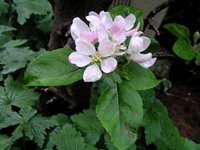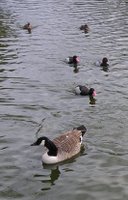
I seem to have been the only person in the blogosphere to have overlooked the launch of the
Google Librarian newsletter. "Google and librarians share the same mission: to organise the world's information and make it universally accessible and useful." The article in the first issue
How does Google collect and rank results? is a straightforward summary of what one had gathered already, but nicely written and with a couple of "exercises" to use with students to help them understand the principles. There's also a link to the ever-amusing Pigeon Ranking spoof they did.
http://www.google.com/newsletter/librarian/ librarian_2005_12/newsletter.htmlThe second issue at
http://www.google.com/newsletter/librarian/ librarian_2006_01/newsletter.html starts with "It's only been a month since we sent the first issue, and already hundreds of you have written to tell us what you think" ;-) There is a short item following up on issue one to explain on what Google means by "most trusted" sites, plus an article
Beyond Algorithms: A Librarian's Guide to Finding Web Sites You Can Trust by Karen Schneider (Director, Librarians' Internet Index) which is fine, but pretty much the usual stuff. The Google people also apologise in this issue for calling their first issue an "edition" and rather annoyingly they also don't seem to have cottoned on to the concept of a journal homepage. However, on the other hand, I suppose this could be seen as rather endearing. Were it not that they shared our mission " to organise the world's information and make it universally accessible and useful" Hmmm.
This venture might explain why I got an email before Christmas.... it arrived while I was away, then I didn't open it for ages because I thought it was a routine Google Friends email ... it turned out to be an email from someone at Google (addressed to me and a clutch of other people, some of whom I know) inviting me to send my CV to Google. Perhaps I was at a low energy point, but once I'd worked out it was (I think) for real I just felt a bit perplexed ... but if they are trying to build up contacts with the library and information community I suppose it is less baffling. I imagine it's a bit late to email and say "Hi! I just realised that email you sent 2 months ago was the opportunity of a lifetime! Yo Google!" On the other hand, I might get a free Google T shirt out of it.
Anyway, to round off, there is also the Google blog aimed at librarian and non-librarian alike
http://googleblog.blogspot.com/. When I just looked at it it had something about the Superbowl, and is therefore pretty incomprehensible to me. However I scrolled down and they had a transcript of their statement on their presence in China, which is rather more interesting.
Photo by S. Webber: Apple blossom, April 2004, with Photoshop watercolour effect.
 On 7th April I will be giving a seminar Information literacy in the workplace with Ola Pilerot (Deputy Head Librarian at Skövde University Library) in Stockholm, Sweden. Here are the details: "Information literacy is a phenomenon that has mainly concerned the education sector, in particular higher education. Recently information literacy has been recognized as an essential competence in the workplace context. By highlighting examples from the literature and from their own experiences as educators the seminar leaders aim to present key aspects of the concept of information literacy in the workplace. By the end of the seminar the participants will have:
On 7th April I will be giving a seminar Information literacy in the workplace with Ola Pilerot (Deputy Head Librarian at Skövde University Library) in Stockholm, Sweden. Here are the details: "Information literacy is a phenomenon that has mainly concerned the education sector, in particular higher education. Recently information literacy has been recognized as an essential competence in the workplace context. By highlighting examples from the literature and from their own experiences as educators the seminar leaders aim to present key aspects of the concept of information literacy in the workplace. By the end of the seminar the participants will have:

















